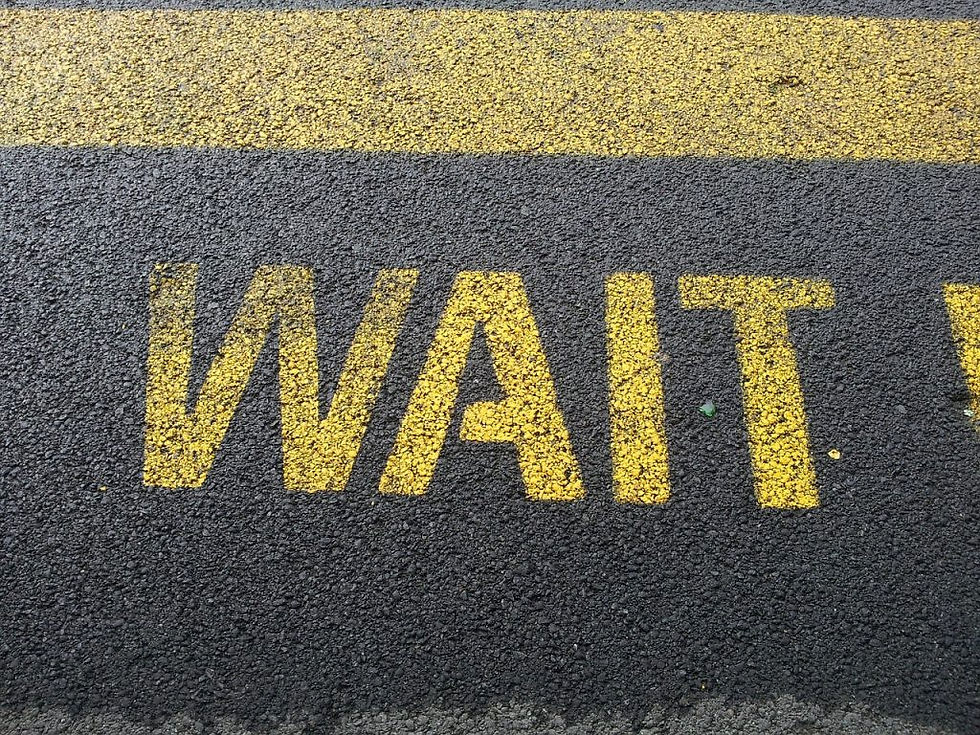Patience: Embrace the Wait
- Viking Vibe Staff
- Mar 6, 2019
- 3 min read
By Sophia Milla (‘20)

“Just a minute.”
“Give me a second.”
Almost nobody likes these phrases. As humans, when it comes to waiting for anything, it’s hard for us to hold our ground. In the process, we lose our patience. Whether it’s excitement for graduation to leave South Brunswick, or if it’s even just anticipation for the weekend, we just can’t wait.
According to a review done by Psychology Today, “When the outcome is not in your control, waiting for answers, waiting to feel better, or waiting to get back together can feel like life or death. You are waiting for resolution—a way of understanding or defining what is happening or has happened between you so you can feel relief.”
Somehow, we are able to get through it. We are able to get through the long wait for resolution-- the wait for satisfaction. Usually, that’s because many of us tend to try fill the “waiting” void. Why? Because there’s constantly a pressure to be filled in the moment, or to have something now.
According to personal finance writer J.D. Roth from Get Rich Slowly, “We live in a Culture of Now. We're constantly bombarded by messages trying to convince us to buy now, to spend now, to have what we want this very moment. Nobody preaches patience. Nobody explains that the cost of Now is a loss of your future.”
We have all probably seen advertisements throughout our days, urging us to "get it now.” It’s something that can apply anywhere, but of course, is also very evident in the world of business.
Even when it comes through the lives we live out, we feel like need to have something now. It might not just be actual products, but it could be a specific experience as well. This especially applies to seniors, where many are already desperate to graduate and to take off from South Brunswick High School.
We can’t rely on the “instant gratification” feeling. Instead, it’s best to look toward what is ahead. Not only focus on what is ahead, but focus on the good of the moment.
Psychotherapist Ms. Heidi Reim said, “What helps is breathing. Breathing and mindfulness. Trying to stay in the current moment where you have no control until it’s over.”
When we don’t rely on feeling gratified right away, we can learn more by working through the process. And the longer we work, the more we learn. When we work longer and harder, it prepares us to achieve our goals.
According to Sarah A. Schnitker’s 2012 study, which was reported by the Mindful health blog, “Schnitker also examined whether patience helps students get things done. In five surveys they completed over the course of a semester, patient people of all stripes reported exerting more effort toward their goals than other people did. Those with interpersonal patience, in particular, made more progress toward their goals and were more satisfied when they achieved them.”
Patience helps us actually do the work needed for our accomplishments. A lot of us can find it difficult to focus on the task, especially because procrastination can get in the way.
Procrastination is just an attempted “loophole” to patience since we are looking for a feeling of instant gratification while waiting.
According to writing site Medium, “Patience is waiting for the seed you've planted to grow. Procrastination is avoiding what needs to be done.”
A huge difference between patience and procrastination is that when you procrastinate, you don’t learn much during the process but rather run away from the situation. When you are patient, you embrace the situation and work toward a good result.
While working toward the good results, other accomplishments can come during the process, such as in character.
Spanish teacher Ms. Edith Fox said, “I need patience because I see that the older I get, the less I can have. From being patient, you learn to listen better. You learn to understand other people… you learn empathy from being patient.”
The big part of being patient is that you learn. When we learn, we become better individuals. We can learn more about our environmental factors. Even if it’s just a minute, it’s better to embrace the moment and be patient.




Comments